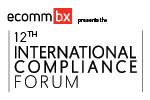Key Topic
PRELIMINARY TOPICS
Welcome Address from the USA Ambassador to Cyprus
Europe’s Big Compliance Reset: Crime, Culture & the Age of Accountability
AMLA – single rule book, AML trends, complliance culture, cross border enforcemement
Panel Discussion:
The Great Convergence: When AML, Conduct & ESG Collide
-
- Supervisory shift: behaviour + data + risk culture
- ESG & greenwashing enforcement
- AMLA + prudential convergence
- Compliance as a “whole-company” function
Sanctions, Secrets & Supply Chains: What We’re Not Supposed to Talk About
Sanctions circumvention, geopolitics, “hidden economy”
Cyprus 3.0: Reinvention, Reform & Reality Checks
AML improvements, FIU performance, crypto/gambling supervision, enforcement, and renewed trust.
Code, Cryptos & Compliance: Losing Sleep in the MiCA Era
-
- MiCA supervision
- AML in VASPs
- Forensics & new crypto typologies
- High-risk wallets & mixers
- What AMLA will look for in crypto
Humans Behaving Badly: The Psychology of Misconduct
Fixing the Plumbing: DORA, Data & the Death of Silos
- DORA implementation
- Operational resilience
- Data governance & record-keeping
- Third-party risk
- How AFC, IT, ops and risk teams must finally work together – breaking up silos
Compliance vs Complexity: Are We Solving Problems or Creating Them?
-
- Is regulation becoming unmanageable?
- Are we measuring the right things?
- Should compliance own culture?
- Is AI the cure or the new risk?
- Will AMLA create harmony or bureaucracy?

